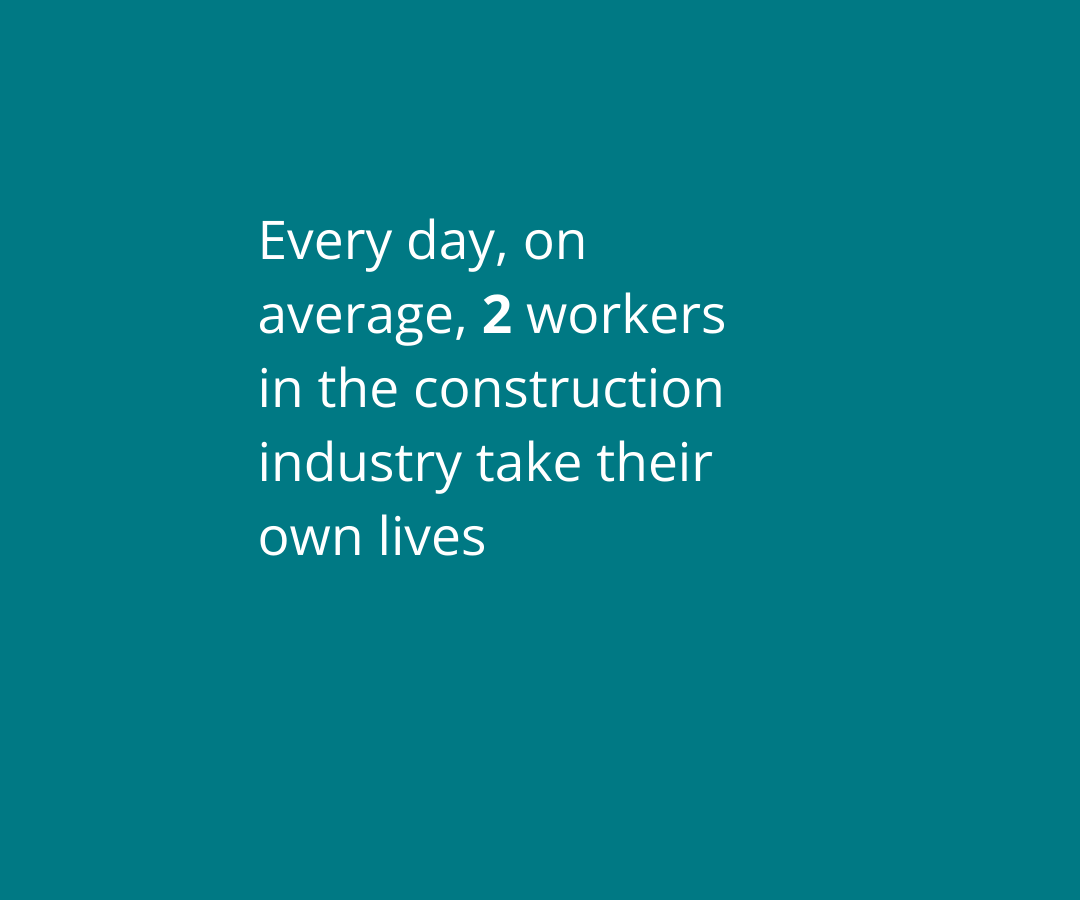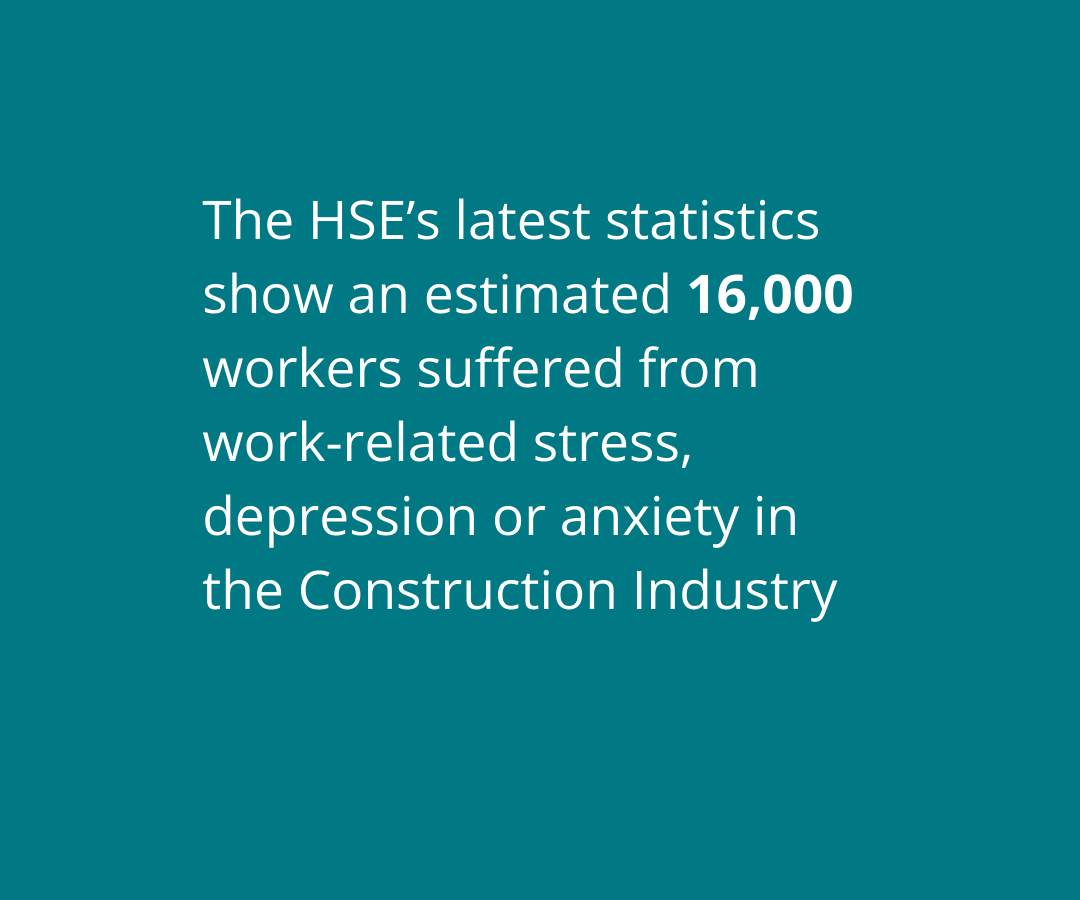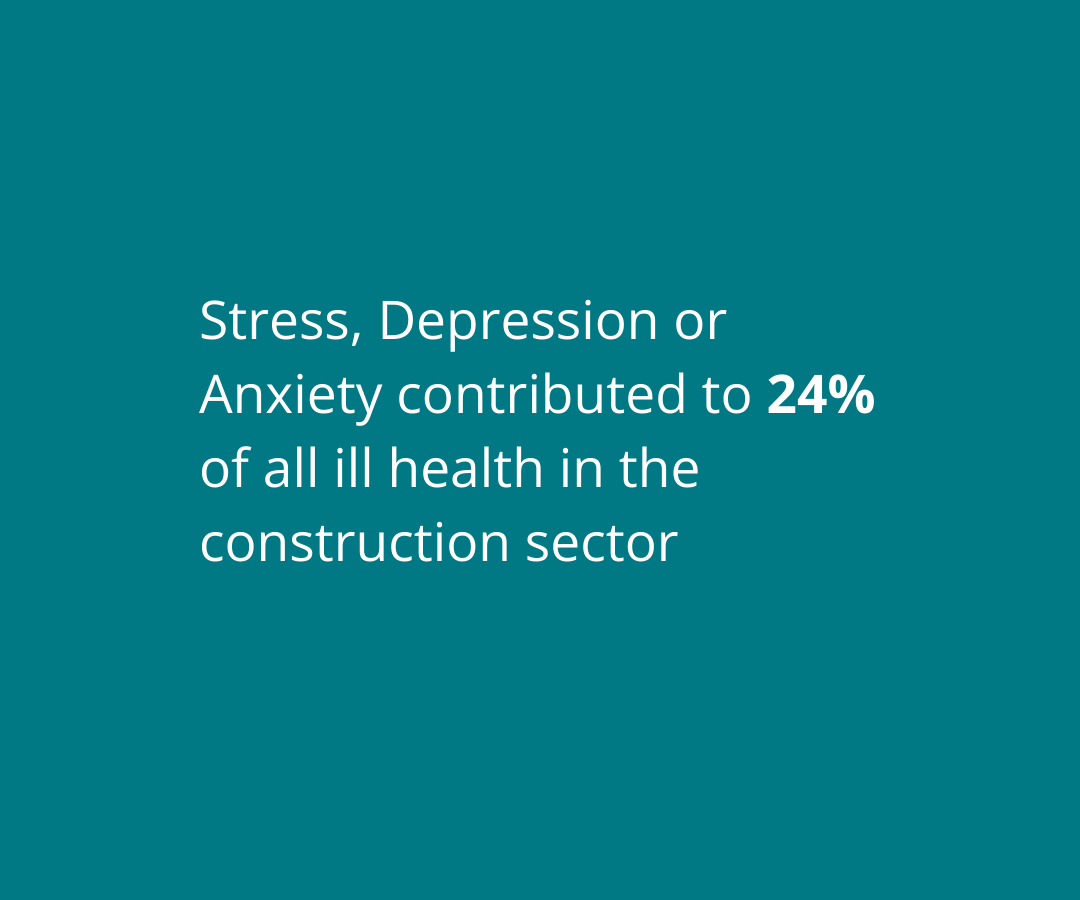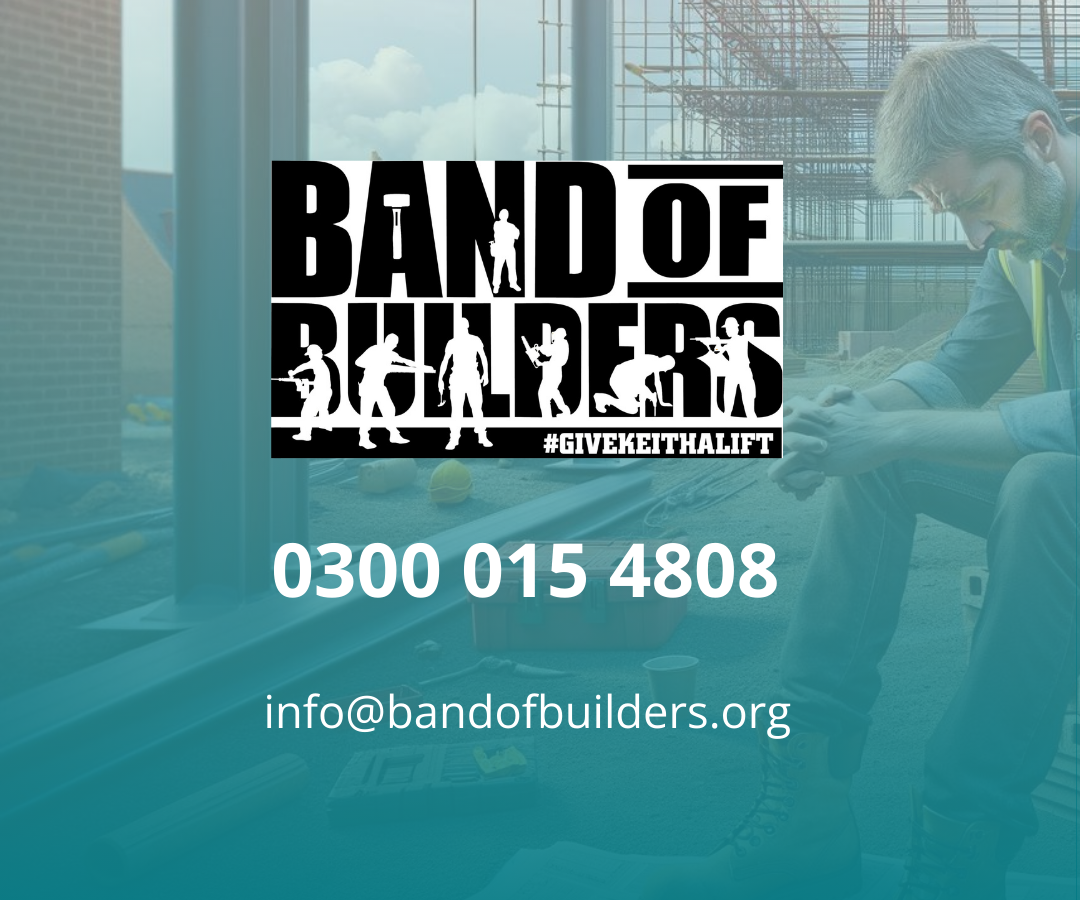Home | Knowledge Hub | News & Insights |
Building Minds: Elevating Mental Health in UK Construction
Gurpreet Singh | 17th May 2024 | 5 mins
In our focus on physical health, the critical importance of mental well-being can sometimes be overshadowed. However, just as our bodies require dedicated care, so do our minds. Mental Health Awareness Week serves as a timely prompt, reminding us to address the stigmas associated with mental health and cultivate a culture of empathy and support.
Mental Health Awareness Week 2024
Established to shed light on the importance of mental health, Mental Health Awareness Week is an initiative celebrated annually across the UK. It provides a platform for individuals, communities, and organisations to come together and address the challenges and stigmas centred around mental health. From depression and anxiety to bipolar disorder and schizophrenia, the spectrum of mental health conditions is vast and diverse. Yet, despite its prevalence, stigma and misinformation continue to shroud the topic.
Some harrowing, key stats around mental health:
people will experience a mental health problem of some kind each year in England
people report experiencing a common mental health problem (like anxiety and depression) in any given week in England
These statistics represent more than just abstract numbers. They reflect the experiences of individuals, families, and communities facing the challenges of mental health. Each statistic tells a story of personal struggle, often marked by courage and perseverance, but sometimes accompanied by feelings of isolation and despair. When we consider these figures, it becomes clear that mental health is not solely an individual concern, but one that has a significant impact on society as a whole. It influences workplaces, schools, healthcare systems, and permeates all aspects of our daily lives.
Mental Health in Construction
The construction sector isn’t just about brick and mortar; it’s about the people who build it. At The OM Group, with our human-first approach, we wholly understand that. However, beneath the hard hats lies a hidden crisis – mental health.
The construction industry is no stranger to the challenges of mental health. Amidst the physical demands and high-pressure environments, construction workers often face unique stressors and challenges that can take a toll on their mental well-being. Long hours, tight deadlines, job insecurity, and the short nature of projects can contribute to feelings of anxiety, depression, and burnout.
Key stats around mental health in Construction:
The Rise of Mental Health Awareness in Construction
Construction, as a whole has historically grappled with a culture of silence surrounding mental health issues, often referred to by many across the sector as the ‘silent epidemic’. However, in recent years, there has been a noticeable shift towards greater awareness and acknowledgment of mental health challenges within the industry.
With increasing awareness and conversations around mental health in various sectors, including workplaces, education, and the media, the construction industry has not been immune to these changes. Organisations and individuals within the industry are recognising the importance of creating supportive and inclusive environments where workers feel comfortable discussing their mental health concerns without fear of stigma or judgment.
However, while strides have been made, there’s a recognition that more efforts are needed to fully tackle mental health challenges in construction.
Behind the hoardings – Breaking down Mental Health Barriers on Site
If you venture behind the hoardings, physical health and ‘traditional’ health and safety are ingrained into construction sites, however the topic of mental health still has a long way to go before it is seen on par with physical health across the sector.
The construction industry must prioritise a holistic approach to mental health to truly propel itself to the forefront of change.
Steps to take:
Mental Health Integrated from the Beginning
Similar to how inductions are conducted across construction sites for new employees, focusing primarily on physical health and safety, mental health should be prioritised and given equal importance. Integrating mental health awareness and support into these inductions can help cultivate a more inclusive and supportive work environment right from the very start. By providing information on recognising signs of mental distress, offering resources for seeking help, and emphasising the importance of mental well-being, construction companies can empower their employees to prioritise their mental health alongside their physical safety.
Signposting Employee’s to support Initiatives
Signposting employees to support initiatives is crucial for promoting mental health awareness in the construction industry. Utilising site boards, newsletters, and other communication channels across construction sites can effectively raise awareness about available mental health resources and support services. Providing information about employee assistance programs (EAPs), mental health hotlines, counselling services, and other relevant support initiatives can help employees access the help they need. By prominently displaying this information in accessible areas on-site and regularly updating it, construction companies can ensure that employees are aware of the support available to them and feel encouraged to seek help when needed.
Prevention as opposed to reaction
Here’s an analogy for you; Imagine a construction project. Ignoring potential cracks in the foundation can lead to a catastrophic collapse later. Proactive maintenance by identifying and addressing weaknesses early ensures a strong, stable structure. Similarly, investing in preventive measures for mental health strengthens the workforce and creates a more sustainable work environment.
By implementing prevention measures such as mental health training, stress management programs, and promoting a culture of open communication, construction companies can create an environment where employees feel supported and feel happy, stepping beyond the hoardings every day.
Leaders across the sector have a responsibility to its workers that goes beyond physical safety. The key lies in addressing the root causes and creating a positive work environment where workers can thrive.
Utilising and Supporting Charities such as Mates in Mind, Band of Builders & Lighthouse Charity
Supporting charities like Mates in Mind, Band of Builders, and Lighthouse Charity is absolutely vital for bolstering mental health support within the construction industry. These organisations work tirelessly and selflessly, dedicating themselves to providing tailored resources and invaluable support assistance for construction workers facing mental health challenges.
Their commitment to the well-being of our industry’s workforce is truly inspiring. By joining hands with these charities, construction companies gain access to invaluable expertise, training programs, and educational materials, helping them to better support their employees through any mental health struggle.
Policy and Environmental Changes across Site
Construction has long been known for its demanding schedules and challenging work environments. However, there’s a growing recognition that the sector can greatly enhance worker well-being through the adoption of flexible working arrangements and supportive policies.
One of the most impactful changes the industry can make is to introduce flexible working hours, remote work options, and staggered shifts. These changes can help construction workers achieve a healthier work-life balance. Flexibility in scheduling allows employees to better manage personal responsibilities, reducing stress and preventing burnout. This, in turn, create a greater sense of autonomy and control over their work lives.
Timewise & Build UK Flexible Working Pilot Programme
In a programme co-designed with Build UK, Timewise piloted flexible working in site-based teams at four leading construction firms.
The programme comprised pilots with 4 leading construction firms – BAM Construct, BAM Nuttall, Skanska UK and Willmott Dixon. It aimed to test if flexible working for site-based construction teams could mitigate cultural issues and demanding work patterns. These factors are major contributors to the industry’s challenges in attracting and retaining talent. Specifically, the program sought to address the negative impact of the long hours’ culture on mental health and well-being.
The study demonstrated that flexible working had a significant positive impact on participants’ well-being. Many workers highlighted improvements in their family life and reported better mental and physical health. Several participants even stated that the ability to work flexibly would be a key criterion for them in future job choices, potentially more important than higher earnings. This realisation came from experiencing the substantial benefits flexible working brought to their mental health.
Workers also voiced a clear improvement in their ability to find the time to look after their mental and physical health and wellbeing.
The study’s findings suggest that the construction sector should adopt flexible working practices to significantly enhance the mental well-being of its workforce. This shift can create a more supportive and productive work environment, benefiting both employees and employers. Embracing flexible working practices is a critical step for the construction industry to promote mental health and nurture a healthier, more engaged workforce.
Supportive Policies
Supportive policies are equally crucial. Providing access to mental health resources, promoting open communication, and ensuring a safe and healthy work environment are essential. Regular mental health check-ins, training managers to offer effective support, and promoting mental health awareness can create a more supportive and understanding workplace culture.
The OM Group & our Human-First Approach
At The OM Group, we believe our greatest asset walks through the door every day – our excellent team. This understanding drives our dedication to doing everything we can to provide a work environment that prioritises well-being and empowers our team. We achieve this through our human-first approach.
Our human-first approach is all about supporting mental health and creating a positive, thriving work environment. Here’s how we do it:
Flexible Working Arrangements
Balancing work and life can be challenging, so we offer flexible working options. Whether it’s remote work, flexible hours, or staggered shifts, these arrangements help our team manage their personal and professional lives more effectively. This flexibility reduces stress and boosts overall satisfaction, directly improving their mental health. We believe that when our employees are happy and balanced, they bring their best to work.
Comprehensive Mental Health Policies
Mental health support is a top priority for us. Our mental health policy is a living document, regularly updated to include the latest best practices. This ensures our employees always have access to essential mental health resources, like counselling services and wellness programs. By staying proactive, we provide the support our team needs to thrive, promoting better mental well-being.
Encouraging Open Communication
We believe that a supportive workplace starts with open, honest communication. We encourage our employees to share their thoughts, concerns, and ideas without fear of stigma or judgment. This transparency builds trust and ensures that everyone feels heard and valued, which is crucial for mental health. It’s important to us that they are more than just employees, they are humans first, above all.
Conclusion
In conclusion, Mental Health Awareness Week is a vital reminder that we need to focus on mental well-being in every sector, especially in construction. For too long, physical safety has been the primary concern on construction sites, but it’s time to embrace a more holistic approach that values mental health just as much. The statistics and personal stories reveal the stark reality of mental health challenges among construction workers, highlighting the urgent need for proactive measures.
At The OM Group, we’re deeply committed to valuing a culture where mental well-being is a priority. Our human-first approach means integrating mental health awareness into every aspect of our work environment. From the very start, we include mental health in our inductions, ensuring that our employees know they have access to the support they need. Signposting initiatives and resources clearly and regularly helps our team feel empowered to seek help when they need it.
Mates in Mind
Established in 2016, by the Health In Construction Leadership Group (HCLG) with the support of the British Safety Council, Mates in Mind is a leading UK charity raising awareness and addressing the stigma of poor mental health. They promote and lead the development of positive mental wellbeing within the workplace.
Mates in Mind was initially established to support the UK Construction sector and related industries, however due to increasing number of enquiries from a range of other industries, there scope of support services now extend to a range of sectors.
As a charity, Mates in Mind enables UK organisations, of any size, to improve their workforces’ mental health. They do this by providing the skills, clarity and confidence to employers on how to raise awareness, improve understanding and address the stigma that surrounds mental health.
They also advocate and influence policy with regards to workplace mental health.
Lighthouse Construction Industry Charity
The Lighthouse Construction Industry Charity is the only charity that provides emotional, physical and financial wellbeing support to the construction community and their families.
Lighthouse Construction Industry Charity offer a holistic approach to supporting the construction sector, addressing a wide range of needs that can impact well-being, such as emotional, physical and financial wellbeing.
Through their 24/7 Construction Industry Helpline, Lighthouse offer free and confidential support and advice on a huge variety of wellbeing issues. Their expert helpline advisors provide an invaluable, listening ear, whilst also specialising and providing holistic support.
Lighthouse’ text ‘HARDHAT’ service meets the needs of those who feel uncomfortable speaking with someone on the telephone or perhaps may find it difficult to find a place and time to talk. The service provides immediate one-to-one support.
Additional Links/Resources
Mental Health Foundation – www.mentalhealth.org.uk/explore-mental-health/publications
Mind – www.mind.org.uk/workplace/mental-health-at-work/taking-care-of-your-staff/useful-resources/
Mental Health UK – www.mentalhealth-uk.org/help-and-information/downloadable-resources/
Other Insights
Share
Get in touch
hello@theomgroup.co.uk
0344 288 9000
Any questions?
We’re here to help. Ask us a question and one of our experts will provide you with a detailed reply.
